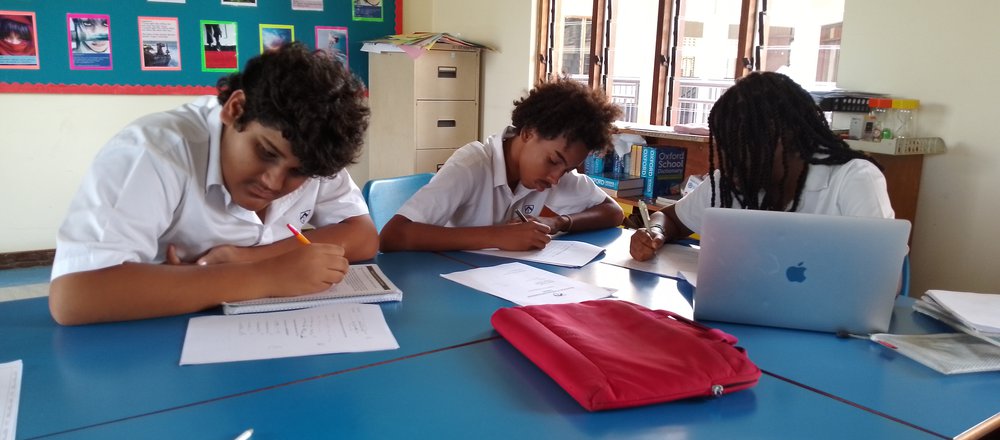HABARI ZA KISWAHILI

23rd June 2023
Communication lies at the heart of language learning, and KS3 students are encouraged to develop their speaking, listening, reading, and writing skills in the target language. Through interactive activities like pair work, group discussions, and language games, students build confidence in expressing themselves and develop a solid foundation for future language study. This week, after a whole week of end-of-year exams exercise in week 8, the Kiswahili students had the opportunity to correct their examinations first through their peers, Swahili dictionaries, and through the mark scheme/teacher. For listening tests, we had to pause the clips numerous times for the students to understand why they missed the right answers. Heated discussions sometimes arose, showing how passionate students were to get the answers right. This exposure allows students to compare and contrast different areas of the language, enabling a deeper understanding of its structures and enhancing their overall language-learning ability.
The benefits of studying modern foreign languages in KS3 extend beyond the classroom. Proficiency in a foreign language opens doors to diverse career paths and expands opportunities for higher education and international experiences. In the modern competitive world students need to have an extra advantage over their peers and having an extra language is definitely one of them. Multilingual candidates are in high demand in fields such as tourism, international business, translation, and more.
Well done to all the Swahili students for another year of enthusiasm for the language and the zeal to do better and better.
Ms Simon
Kiswahili teacher






